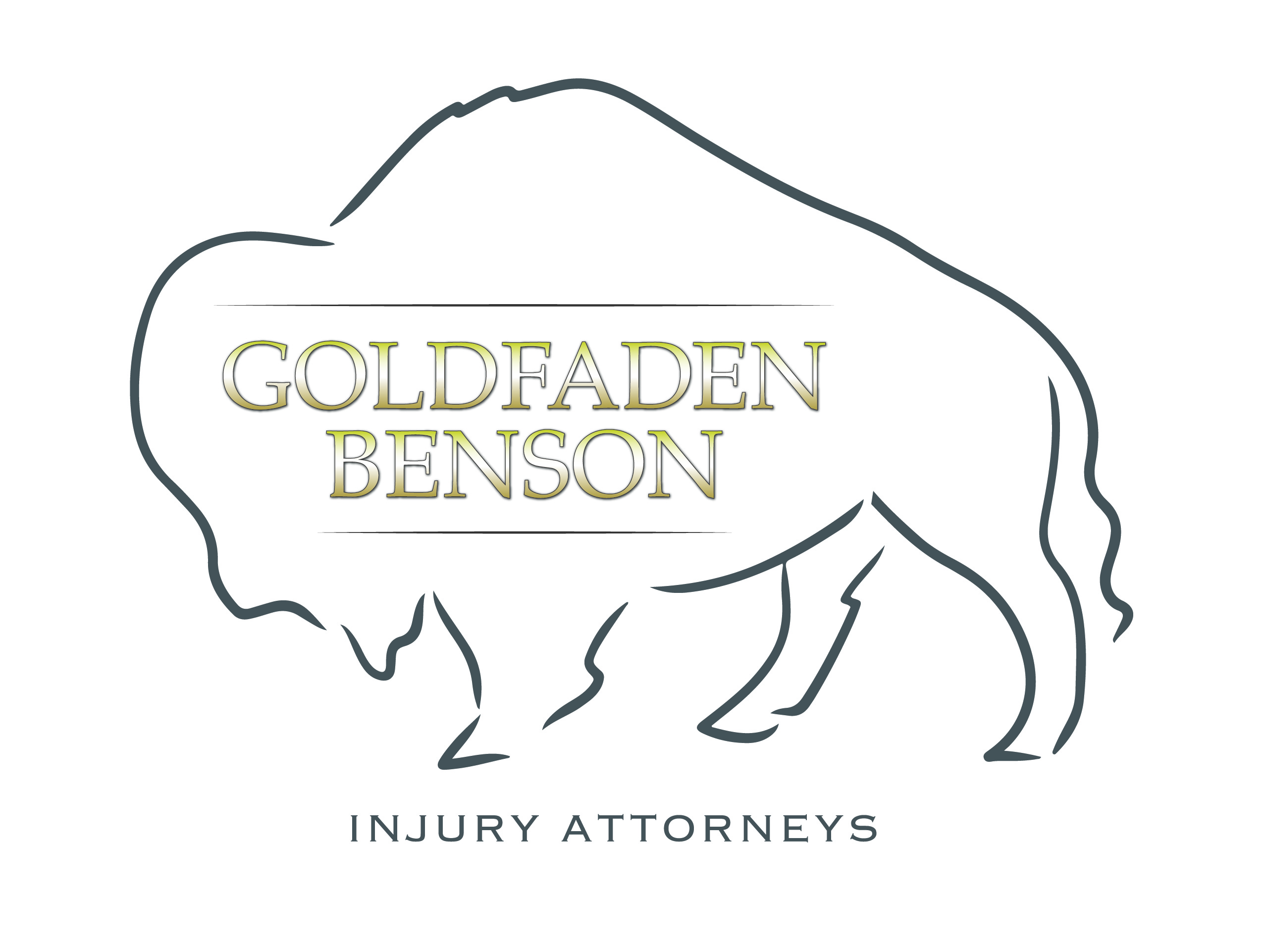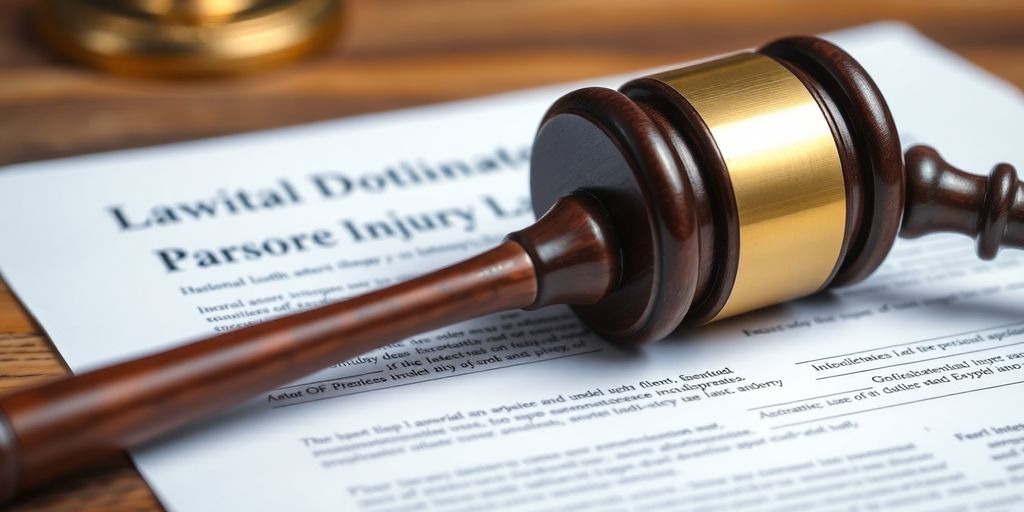In this article, we will explore the basics of injury law in Oakland. Understanding how personal injury claims work can help you navigate the legal system if you ever find yourself in a situation where you need to seek compensation for an injury. From knowing what steps to take after an injury to understanding how to choose the right attorney, this guide will provide you with essential information to empower you during a difficult time.
Key Takeaways
- Injury law helps people get compensation for harm caused by others.
- After an injury, it’s important to act quickly to protect your rights.
- Gathering evidence, like photos and witness statements, is crucial.
- Choosing the right attorney can make a big difference in your case.
- Understanding local laws can affect how your personal injury claim is handled.
Overview of Injury Law in Oakland
Definition and Scope of Injury Law
Injury law, also known as personal injury law, deals with cases where someone gets hurt due to another person's actions. This can include accidents, medical mistakes, or even intentional harm. The main goal is to help victims get compensation for their injuries and losses.
Key Principles of Personal Injury Law
There are a few key ideas that guide personal injury cases:
- Negligence: This means that someone didn’t act carefully, leading to someone else getting hurt.
- Liability: This is about who is responsible for the injury.
- Damages: This refers to the money a victim can receive for their injuries.
Common Types of Personal Injury Cases
In Oakland, some common personal injury cases include:
- Car accidents
- Slip and fall incidents
- Medical malpractice
- Dog bites
- Workplace injuries
Personal injury law is important because it helps victims of negligence get the justice they deserve. At Spencer C. Young Law, PC, our Bay Area injury team is dedicated to helping victims of negligence who have suffered injuries obtain the justice they deserve.
Steps to Take After an Injury
Immediate Actions to Protect Your Rights
After an injury, it’s crucial to act quickly. Your first step should be to ensure your safety. If you are in a dangerous situation, move to a safe place. Then, seek medical help if needed. Remember, your health is the top priority.
Gathering Evidence and Documentation
Collecting evidence is essential for your case. Here are some important things to do:
- Take photos of the scene and your injuries.
- Write down what happened while it’s fresh in your mind.
- Get contact information from witnesses.
Reporting the Incident to Authorities
Make sure to report the incident to the right authorities. This could be the police, your employer, or another relevant party. Reporting helps create an official record of what happened. This record can be very important for your claim.
Taking these steps can help you protect your rights and strengthen your case. Remember, acting quickly is key!
Understanding the Legal Process

Filing a Personal Injury Claim
Filing a personal injury claim is the first step in seeking compensation for your injuries. This process can be complex, but understanding the basics can help you navigate it more easily. Here are the key steps:
- Consult an attorney: It’s important to get legal advice.
- Gather necessary documents: Collect medical records, bills, and any evidence related to your case.
- Submit your claim: File your claim with the appropriate insurance company or court.
The Role of Insurance Companies
Insurance companies play a significant role in personal injury claims. They assess the claim and determine how much compensation you may receive. Here are some important points to remember:
- They may try to minimize your claim.
- Negotiation is key: Be prepared to negotiate.
- Understand your policy limits and coverage.
Navigating Court Proceedings
If your case goes to court, it’s essential to know what to expect. Here’s a brief overview of the court process:
- Pre-trial motions: Both sides may file motions to resolve issues before the trial.
- Trial: Present your case to a judge or jury.
- Verdict: The court will make a decision on your case.
Understanding the legal process can help you feel more confident as you pursue your claim. Remember, negligence and liability are key terms in personal injury law that you should be familiar with.
Choosing the Right Personal Injury Attorney

When you’ve been injured, finding the right oakland personal injury lawyer can make a big difference in your case. Here are some important things to consider:
Qualities to Look for in an Attorney
- Experience: Look for a lawyer who has handled cases similar to yours.
- Communication: Choose someone who explains things clearly and keeps you updated.
- Reputation: Check reviews and ask for recommendations from friends or family.
Questions to Ask During Consultation
- What is your experience with personal injury cases?
- How do you charge for your services?
- Can you provide references from past clients?
Understanding Legal Fees and Costs
Legal fees can vary, so it’s important to understand how you will be charged. Here’s a simple breakdown:
| Fee Type | Description |
|---|---|
| Contingency Fee | Lawyer gets paid only if you win |
| Hourly Rate | You pay for the time spent on your case |
| Flat Fee | A set amount for specific services |
Choosing the right attorney is crucial for your case. They can help you navigate the legal system and fight for your rights. Seeking justice in Oakland? Our personal injury lawyers at TopDog Law are ready to fight for you. Contact us today for a free consultation!
Maximizing Your Compensation
Calculating Damages and Losses
To get the most out of your personal injury claim, you need to understand how to calculate your damages. This includes:
- Medical expenses: All costs related to your treatment.
- Lost wages: Money you missed out on because you couldn’t work.
- Pain and suffering: Compensation for emotional distress.
Negotiating a Settlement
Negotiating can be tricky, but here are some tips for negotiating personal injury settlements:
- Understand the insurance company's agenda.
- File your claim promptly.
- Never admit fault.
- Stick to the facts.
- Know the value of your claim.
- Be prepared to walk away if necessary.
When to Consider Going to Trial
Sometimes, settling isn’t enough. If you can’t reach a fair agreement, you might need to go to trial. Consider this option if:
- The insurance offer is too low.
- Your injuries are severe and long-lasting.
- You want to hold the other party accountable.
Remember, the goal is to ensure you receive fair compensation for your injuries and losses. Don’t rush the process; take your time to evaluate your options.
Common Challenges in Personal Injury Claims
Dealing with Uncooperative Parties
When you are involved in a personal injury case, you may face difficulties with parties who are not willing to cooperate. This can include:
- Insurance companies that deny claims or offer low settlements.
- Defendants who refuse to admit fault.
- Witnesses who may not want to get involved.
Overcoming Insurance Company Tactics
Insurance companies often use various strategies to minimize their payouts. Some common tactics include:
- Delaying the claims process to pressure you into accepting a lower offer.
- Requesting excessive documentation to slow down your claim.
- Offering a quick settlement that may not cover all your expenses.
Handling Delays in the Legal Process
The legal process can be slow, and this can be frustrating. Here are some reasons for delays:
- Court backlogs that slow down case hearings.
- Discovery disputes where both parties argue over evidence.
- Settlement negotiations that take longer than expected.
Navigating a personal injury claim can be tough, but understanding these challenges can help you prepare better.
In summary, being aware of these common challenges in Oakland personal injury law can help you manage your expectations and plan your next steps effectively.
The Impact of Local Laws on Your Case
Understanding Oakland's Legal Environment
In Oakland, the laws surrounding personal injury cases can be quite different from other places. Local laws can significantly affect your case. It’s important to know how these laws work to protect your rights.
State-Specific Regulations and Their Effects
California has specific rules that can change how personal injury claims are handled. Here are some key points to consider:
- Statute of Limitations: You usually have two years to file a claim after an injury.
- Comparative Negligence: If you are partly at fault, your compensation may be reduced.
- Damage Caps: There are limits on certain types of damages, like pain and suffering.
Recent Changes in Injury Law Legislation
Laws can change, and it’s crucial to stay updated. Here are some recent changes that might impact your case:
- New regulations on insurance claims.
- Adjustments to the statute of limitations for specific injuries.
- Changes in how damages are calculated.
Understanding these local laws is essential for anyone involved in a personal injury case. They can shape the outcome of your claim and influence how much compensation you might receive.
In summary, being aware of Oakland's legal environment and the specific regulations in California can help you navigate your personal injury claim more effectively.
Local laws can greatly affect your legal situation. They can change how your case is handled and what you can expect in terms of outcomes. If you want to understand how these laws might impact you, visit our website for more information. Don't hesitate to reach out!
Conclusion
In summary, understanding injury law is key to handling personal injury claims in Oakland. Knowing your rights and the steps to take can make a big difference in your case. Always remember to gather evidence, seek medical help, and consult with a lawyer if needed. This guide aims to help you feel more confident as you navigate through the process. With the right information and support, you can work towards getting the compensation you deserve.
Frequently Asked Questions
What is injury law?
Injury law is a type of law that helps people who get hurt because of someone else's actions. It covers many situations, like car accidents or slips and falls.
What should I do first after getting injured?
If you get hurt, the first thing to do is to make sure you're safe. Then, get medical help and try to collect information about what happened.
How do I know if I have a valid personal injury claim?
You might have a valid claim if someone else was at fault for your injury and you can show that you were hurt and had damages.
How long does it take to settle a personal injury case?
The time it takes to settle a case can vary a lot. Some cases might settle in a few months, while others can take years, depending on the situation.
What should I look for in a personal injury lawyer?
When choosing a lawyer, look for someone with experience in injury cases, good communication skills, and a strong reputation.
Can I handle my personal injury claim without a lawyer?
Yes, you can handle your claim on your own, but it can be complicated. Having a lawyer can help you understand the process and get better results.







